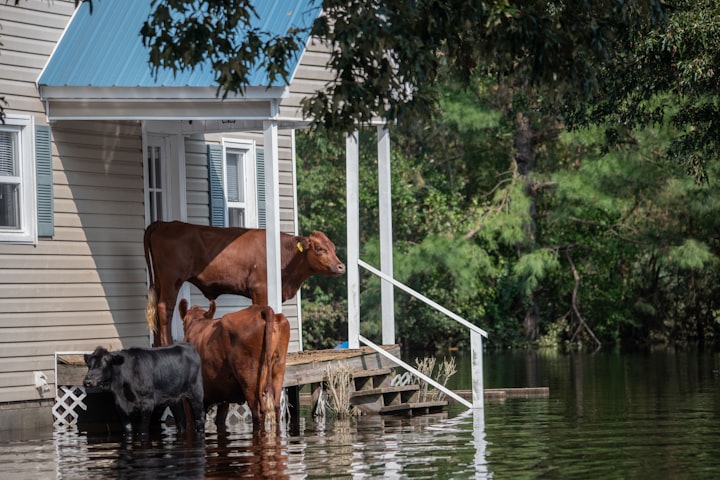When Mark Smith and his colleagues set out to help strengthen the economy on Vancouver Island, they had no idea that they'd end up trying to commercialize and scale an industry with the potential to address almost all of the crises we face today. Five years later, he shares the highlights of what he learned and the opportunities he sees for the future.
A businessman at heart, Mark saw huge potential on the island to tackle issues like climate change, social justice, biodiversity, and rural economic development. But to do that, he knew they'd need help. So he set out to earn Foreign Trade Zone status for the island, through his role with the Vancouver Island Economic Association (VIEA).
Our objective there was to be able to leverage that to create and attract foreign direct investment to really start scaling up a multitude of opportunities on the island. Get companies export ready was one of the mandates. And to build things at scale, again, to build out the island economy.
It was a particularly tough challenge because that kind of status is typically only awarded to local governments, not entire regions. That meant there was no real road map for how to navigate all the red tape and tell a convincing story. So Mark did what he does best – found ways to collaborate across industries and sectors to get them to show their support, while also investing in research to demonstrate the potential of the region.
Fresh eyes reveal fresh opportunities
Despite the odds, they were successful in getting an FTZ designation for the whole Island. But that was just the beginning of his journey. The next step was to figure out where to focus their economic development efforts. Working with a consultant, the team at VIEA identified almost a dozen opportunities, including the usual suspects like tourism and forestry. However, they also saw seaweed float to the top, so to speak, along with other aquaculture activities.
As we furthered those discussions and started to look at this as a sector opportunity, we realized that this was a monumental opportunity for both British Columbia and now for Canada.
Mark is the first to point out that seaweed farming is not a new thing. However, no one in Canada was doing it on a commercial scale. Plus, thanks to new research, we're now seeing that seaweed has incredible potential to transform multiple sectors when it's used for things like food, fuel, packaging and nutraceuticals.
Excited by the opportunity, he and others found themselves forming an association of seaweed growers to promote these new products.
Growing the supply is just the beginning
But they realized quickly that growing seaweed was just the first step; they were missing key parts of the industry. There was no point in scaling operations to grow seaweed if there was no capacity to process, manufacture or sell products downstream. In many cases, there weren't even any markets yet for some of the new products.
In our first year in a host of conversations with a number of organizations, it became apparent to us that the perception was that we were really just about farming and cultivating. And I always like to say that growth is mission critical – without the farmers and the cultivation happening, we have no industry. But the reality is that, to build out an entire sector, we need to represent all of that, and that could be from the venture capitalist to the food processing. To the exporters, to the shipping company. So it's the whole ecosystem.
Once again, Mark found himself having to pivot from a focus on growers to figure out how to build out the whole seaweed industry. Now, he and his small team at the Pacific Seaweed Industry Association are looking at going nationwide. But they know that they have to do it in a sustainable manner.
I'm very careful of how I use the word scale in this industry. And what I mean by that is that we can grow this industry, we can have hundreds of farms up and down the coast. But where some countries might choose to have nothing but farm after farm, after farm, after farm on their coastline, that's not our vision. There is, I'll call it a balance in there. And we have to look at all of the things around, the environmental piece, the climate considerations, all of the other things, the existing ecosystems in those marine environments. And we always defer to the science to help us get to scale. But we need to get going. British Columbia needs to get going or we're gonna miss the opportunity to lead in this sector.
Seaweed as super-plant
Seaweed fans around the world know that it offers society a win-win in multiple ways. Seaweed:
- Absorbs carbon dioxide, helping to mitigate climate change.
- Provides habitat for fish, supporting biodiversity.
- Protects coastlines from storm surge – a threat that's growing with climate change and is high on the radar of insurance companies.
- Can replace fossil fuels as a biofuel that's not just for transportation, but can also be used in manufacturing things like packaging and plastic wrap.
- Fills a critical food gap as a highly adaptable, plant-based source of nutrition.
- Can transform agriculture, reducing methane production from cow flatulence by up to 95% when added to cattle feed.
- part of the challenge globally is to reduce those methane gases when you've got something that you can add 5% additive and have like upwards of a 95% methane reduction. It's a great business case.
- Creates good jobs in rural and First Nations communities hit hard by the transition from resource-based economies.
Seaweed has such great potential that even Amazon is getting in the game, funding the world’s first commercial-scale seaweed farm amid offshore wind turbines off the coast of the Netherlands.
The problems of red tape and ROI
But, as Mark tells us, realizing all this potential is tough to do with a tiny team and no real support from investors yet. Plus they face significant barriers trying to get going in a complex and dynamic regulatory environment.
If I'm Mark and Denise's seaweed venture company, and I'm gonna start today. And I discover that it could be a two to five year process in getting a license, that is a monumental deterrent for any business to look at, to go, "Am I gonna roll the dice? I might have to buy equipment, I might need infrastructure, I need staff." Like, how do you do all that when you're not even quite sure if the outcome is going to be there? And I think, in trying to build out a net new sector and opportunity, it's gonna take some time. It's complex. And there's a whole host of moving parts.
Access to capital is another challenge. This is such a new industry that they don't have the data investors need yet to demonstrate ROI. So they're looking for someone from the philanthropic or public sector to step up to bridge that gap.
I'm trying to sell the story to municipalities, to government, all of that to go, "Let's build out the production system." And of course, the first comment I get is, "Yeah, but there is no production". And I tell them, "Well, we're building production. But when we get production, hypothetically in two to five years, and we have no processing, then what?" It's difficult. So what I've come to accept is that we need to be doing all those things concurrently, which might not be a great business methodology. It becomes so big. And I know that's what keeps me up at night, because I get stuck thinking, "Well, where am I gonna start tomorrow? Am I starting in helping food production? Is it the cattle thing? Is it just getting the industry going? All of the above."
Vision is everything
So what keeps Mark going, despite all these challenges?
Where else do you get the opportunity to do right by the environment, reignite coastal communities and start to rebuild transitioning economies? Those things are exciting to me. I just love to see when they come to fruition. And this is maybe a completely left field answer, but I'm just not quitting. Part of it is, I think it's me personally, I'm too stubborn to quit. Because I see such a massive opportunity and I'm afraid if we say, "No, it will just organically take care of itself and somehow grow". And we walk, the opportunity may go away because somebody's not accelerating it at the right tables to get some of those things done.
With significant investment finally starting to flow to climate solutions, Mark's hopeful that he and his team will be able to build the momentum they need to help Canada take the lead in this industry. In the meantime, he has this advice for other innovators tackling similar challenges.
I have a lifelong mentor that I look to whose advice is simple: pitch fearlessly. And that's not just making the proverbial pitch to your bank or to an investor – but to be steadfast in your commitment and belief in what you're doing. If your story's compelling, I think the money and the enthusiasm and all the other pieces you need to make it successful will show up.





